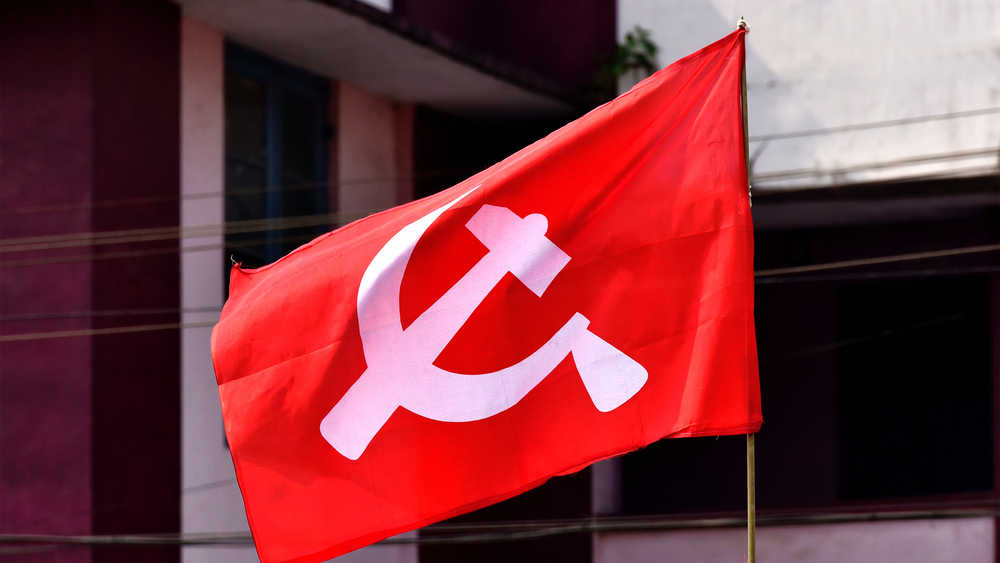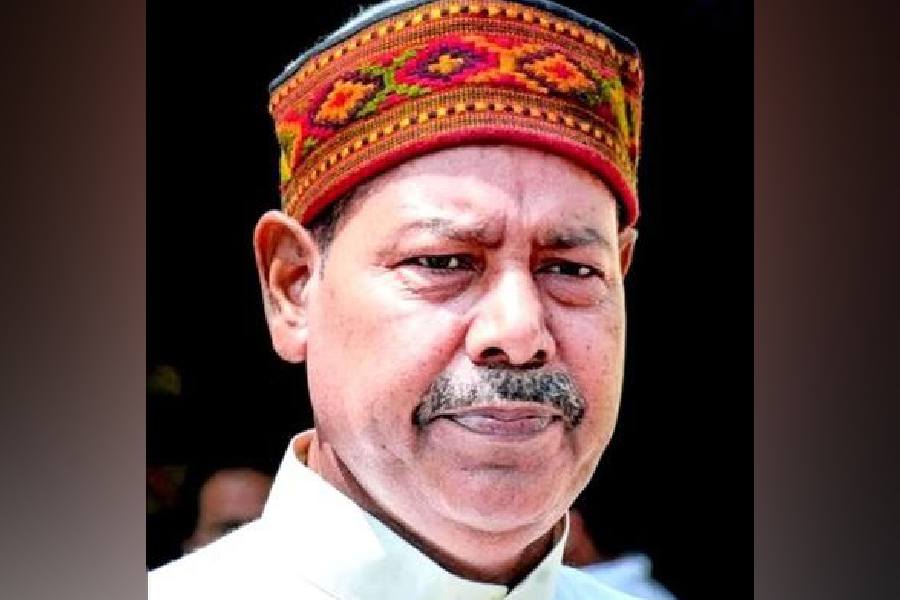A dear friend claims that she once had two unfailing landmarks on Fern Road, between Ballygunge Terrace and Kasba bridge: one turn past an istiriwala and the next past a brown-and-white cow.
They worked splendidly, till one day, mysteriously, the landmarks disappeared, never to return again. Maybe, in this city of disappearing landmarks, this was not so mysterious after all. Better known and, one would imagine, less mobile landmarks such as the Parama statue at the Science City crossing or the cannon at the centre of New Market had just disappeared one day. Not to mention entire heritage buildings. They have a habit of disappearing without a trace from the city.
In such circumstances, I am proud to report that I have a personal landmark that has stood by me for years. It does not stand, really. It flies. It is a red flag bearing the CPI(M) symbol.
When I saw it first, more than a decade ago, it was stuck into a shed at the corner of a lane that leads to an apartment block in south Calcutta where my uncle lives. This is one of the new residential areas that have come up off the E.M. Bypass, towards Santoshpur. The neighbourhood has not been planned much and the construction seems haphazard. Moreover, the buildings look very much like each other. They are generally three- or four-storeyed apartment blocks built along one side of a canal in what can be called the contemporary Calcutta style for three- or four-storeyed apartment blocks.
Because the buildings look so similar, it is easy to miss the right turn to arrive at the right one. So I used to look out for the red flag with the sickle, the hammer and the star. I am no supporter of the CPI(M), nor was ever. But its flag became the tool for me to negotiate my way to my uncle’s house. I was told the shed from which it was flying was a CPI(M) party office once.
In 2011, Bengal changed hands. With a new party in power, I wondered what would happen to the flag in that corner. To my surprise, it remained, though no one seemed to be around to protect it. The shed looked lonely, the flag looked forlorn, but it was there, and I reached my uncle’s house without any problem. Since more buildings were coming up every day, the locality was becoming more confusing and the flag was becoming more important for me. I would stress more about missing the right turn, and be relieved on finding the flag again, a little more faded every time, but stoutly there.
Then one day, three or four years ago, after the Trinamul Congress had won its second term, I was overjoyed to see a bright new red flag having replaced the old, worn-out one. By that time the flag had become less a party symbol for me and more like an old acquaintance who, you were afraid, would not be there the next time. It was also that ever-fixed mark in a city where architecture is anarchic and ugly and aggressive, swallowing up every bit of free land or water that is available — and is inevitably a reflection of the changing politics. It was reassuring to see an innocuous bit of red not only not removed, but replenished when much else in the city was being coloured white and blue.
The shed, however, was brought down later and, at the initiative of local residents, a Shiva temple was built in its place. I was astounded to see that the red flag was still there, flying now from the temple wall, almost shining like a beacon and showing me the way. I do not know who is tolerating whom more: the Marxist flag or the Hindu temple. But tolerance it is.
Now that Bengal is voting again, one wonders what is going to happen to the state. I hope the flag stays on, because the past, whatever it was, should not be undone.











